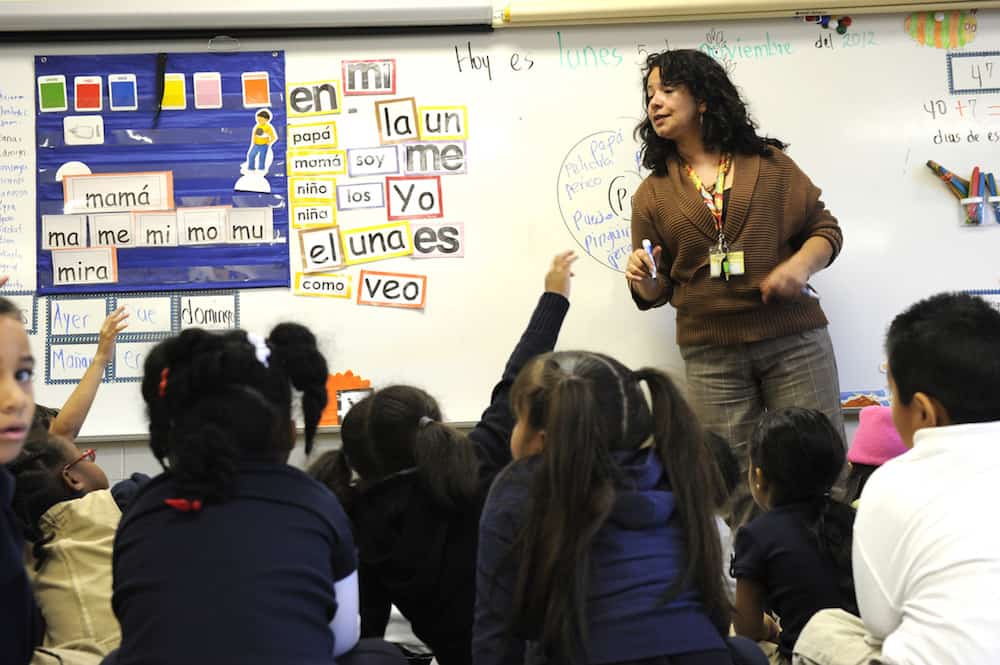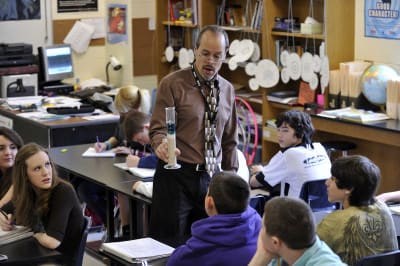

The middle school students are lined up, more or less, at the door of their classroom. They just finished a science lesson about animal habitats, and their teacher tries to quiet the group before heading out into the hallway. The class walks down a hallway and down a flight of stairs, and into a dark room with an enormous aquarium. They peer through the glass and into the water, spotting octopus and jellyfish among the coral. Their teacher begins to connect this exhibit with the lesson she finished five minutes ago.
One of the options district leaders want to explore is a magnet program located at one of Uptown Charlotte’s museums, such as Discovery Place, a science museum that is already a popular stop for school field trips.
This scene hasn’t happened yet — but it could be reality within a few years, as Charlotte-Mecklenburg Schools (CMS) explores how to diversify its school options, including some non-traditional magnet programs. One of the options district leaders want to explore is a magnet program located at one of Uptown Charlotte’s museums, such as Discovery Place, a science museum that is already a popular stop for school field trips.
Members of the Charlotte-Mecklenburg Board of Education heard an update about CMS’ comprehensive magnet program review last week. Other innovative magnet programs up for consideration include single-gender schools and collaborations with technical programs — a magnet school at the fire and police training academies, for example.
CMS operates nine magnet programs in 43 schools. Twenty of those schools are full magnets, while 23 schools have magnet programs that operate within the larger school. CMS has seven schools that are county-wide magnets, meaning they enroll students from across Mecklenburg County, regardless of neighborhood.
In order to establish a magnet school, the Board of Education looks for three criteria:
- A track record of consistently high student achievement
- A track record of narrowing achievement gaps at a rate that exceeds the aggregate rate of home schools (each Mecklenburg County address is assigned an elementary, middle, and high school known as the home school)
- One or more of the following: an academically distinct program, demonstrated innovation in creating high academic growth, and/or a student population that is distinctly more diverse than neighboring home schools
CMS has magnet schools that offer a wide range of programs, such as leadership and global studies, visual and performing arts, and world language immersion. The magnet programs serve more than 19,000 of CMS’ 144,000 students.
Last week, the district completed a two-week study visit with a team from Magnet Schools of America (MSA), a nonprofit group that consults with school districts on designing magnet programs. It’s part of CMS’ regular review of magnet programs, which happens at least every decade, and sometimes more frequently.
The magnet review typically makes parents at existing programs nervous, because, assuming they’re happy with the program, they don’t want the school board to make any changes at their child’s school. But this go-round appears to be largely focused on expanding options, not removing them.
The magnet programs serve more than 19,000 of CMS’ 144,000 students.
CMS is well aware of the increasing competition for public school students; charter schools continue to draw families to enroll in specialized programs, promising options CMS does not currently offer.
MSA will provide a report to the school board in late April or early May about the quality of CMS’ current magnet offerings and about potential benchmarks to measure success.
It’s too early to know whether the vision of students learning and exploring inside one of Charlotte’s uptown museums will become a reality. The logistics — and the cost — of innovative magnets could ultimately be their death knell.
But as more families apply for the magnet lottery (and more get denied because of lack of space) the school board appears committed to finding a way to give parents and students those options.


